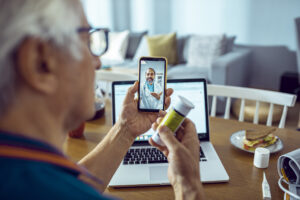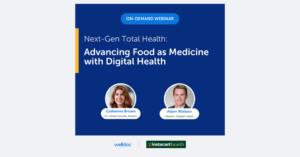
November is National Diabetes Awareness Month; a time to come together and bring awareness to the signs, symptoms, and impact of diabetes. If you work in this industry may know that over 30 million American adults are living with diabetes. You may also know that of those, one in four don’t know they have the disease. However, diabetes awareness isn’t just about statistics, it’s about the real experiences of those who have diabetes. For me, Diabetes Awareness Month is personal.
My Story
I was in management consulting for nearly two decades. As a consulting partner I could find myself on any of 5 different continents in any given week. I was traveling all the time and as a result, found myself not exercising as I should have been, not eating the right things at the right times, and I was definitely not sleeping enough! Eventually, I started noticing that I was tired all the time, drinking a lot more, and I was often irritable. Sounds quite normal for the life of a consultant who is always on the road! It never occurred to me that these symptoms were related to my health.
Ultimately, my wife suggested that I get blood work done to make sure everything was okay. As a physician, I think she suspected that I had the onset of diabetes. Looking back, I remember being on flights when I would suddenly feel very light headed, and often would struggle to stand. On one occasion, I distinctly recall the flight attendant offering me some orange juice, and I began to feel better. Now, I wonder if I had been severely hypoglycemic at the time but just didn’t know it. Had I been more personally aware of the symptoms of hypoglycemia or diabetes generally, I may have taken an interest in checking my blood work earlier.
The problem with diabetes is that it is easy to mistake some of the symptoms for what we normally experience in busy day-to-day life. It was easy to just say “I was traveling, so of course I’m tired,” without ever appreciating the significance of these symptoms. The more we can raise awareness of diabetes and its symptoms, the more people may get help sooner. I hope that raising awareness about diabetes can help make sure others don’t go through the goofy journey that I went through!
What I Wish I Had Known
Most people think about how food and exercise will affect their diabetes, but there are many other variables that many of us don’t realize have an impact. For example, I wish I knew how illnesses like having the flu or a cold can affect blood glucose. I would notice that when I was sick, my blood glucose was always higher. I never knew that this was quite normal to experience when you’re ill. When people with diabetes get sick, they can become worried that their diabetes is getting worse or that their management plan isn’t effective anymore. Many people with diabetes don’t understand what is happening when they’re sick, and that their blood glucose levels should go back down after they recover from the illness.
Secondly, I wish I had known how specific foods impacted my blood glucose differently. Diabetes affects each of us in a unique way. When deciding what to eat, you have to consider many variables including your care team’s recommendations, your personal food preferences, dietary restrictions, and the unique way your body metabolizes various foods. At one point I decided to do my own science experiment using an early version of a continuous glucose monitor to see how different foods and activity affected me personally. It was an eye opener! For example, I tried drinking a little bit of white wine and saw that my blood glucose went up. However, when I drank a little bit of red wine, my blood glucose was “muted.”
I do not know why my body reacted differently. This is not what the literature said. But I’m not the literature. I’m me!
It was especially fun to see how exercise impacted my blood glucose. Seeing my blood glucose go down as I ran on a treadmill was incredibly motivating. Now, every time I have an opportunity to walk extra steps, I‘m going to. As I think about what we’re doing with BlueStar, and the needs of a diabetes patient, I appreciate how we work to understand the “360 degrees” of diabetes. We’re analyzing our user’s sleep, food, exercise, medications, labs, and their blood glucose to understand how each of those variables affect our users individually. That’s why it’s not enough to raise awareness about the importance of A1C alone, we should also educate people on the other variables that impact our diabetes health.




